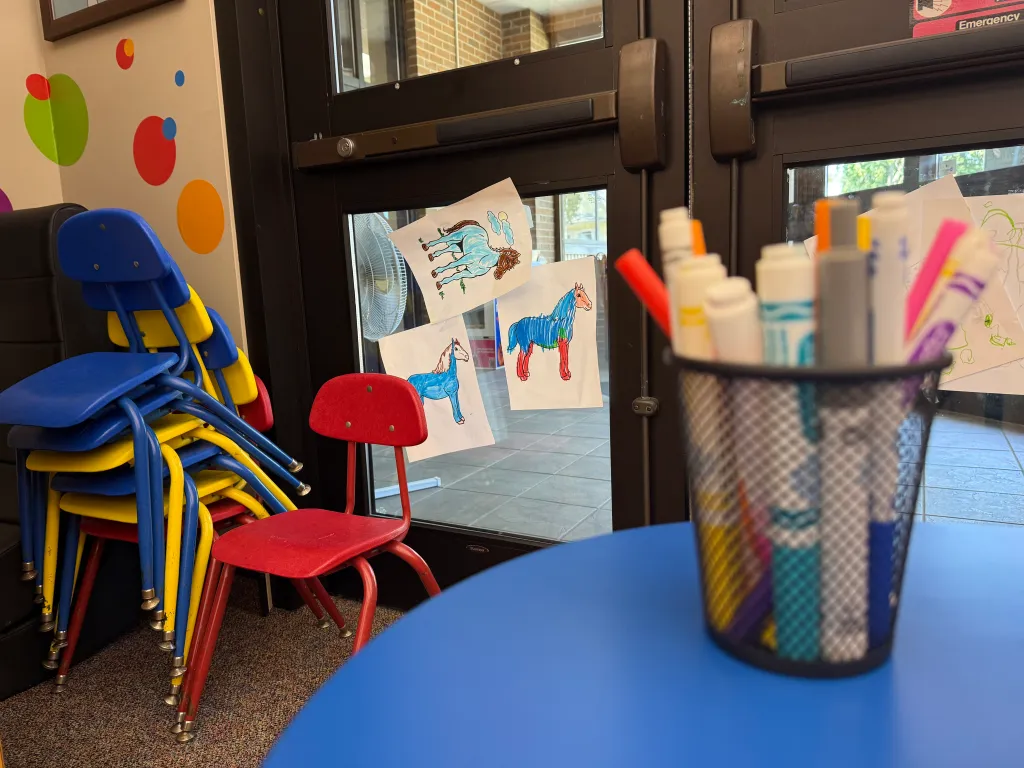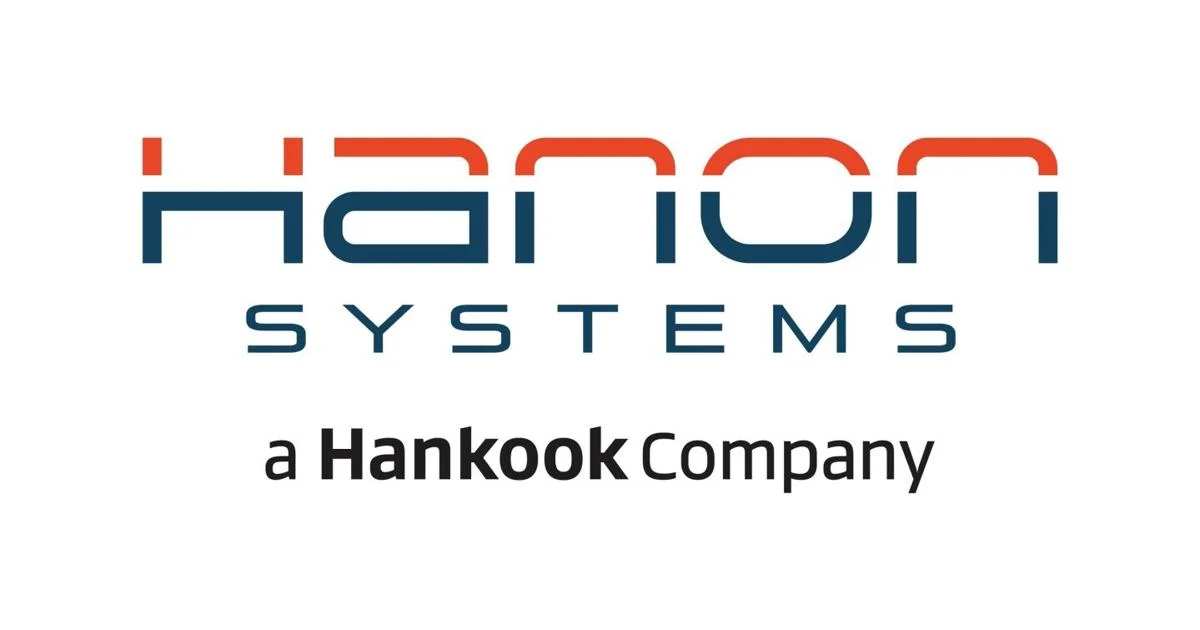
Jasmine Bond spends her weekdays working two libraries in one room that are separated by a movable partition wall.
On one side, the Phoenix Public Library director teaches up to 10 classes of Coolidge Middle School students, who she said often ask questions about what’s beyond the wall. On the other side, she helps local residents print forms, request books and even pay their taxes.
After 4 p.m., the partition wall is taken down and anyone can use both sides of the library, as limited resources are shared through a partnership between the Phoenix Library District and South Holland School District 151. Bond joked that the only library facet they don’t collaborate on is the lights, as that bill can’t be split in half. The Library District pays the School District a fee to use the building, and the School District pays the utility bills. Bond’s salary is paid by both.
Bond, like many other employees at small libraries in Chicago’s south suburbs, said flexibility is the key to her job. But some officials worry limited resources at these libraries may be dwindling further due to federal cuts to agencies such as the Institute of Museum and Library Services that provide grant funding for local libraries across the country.
Bond, whose library has two clerks who work evenings, said she lost an employee over the summer due to those cuts.
Easterseals, a nonprofit that provides services, support and advocacy for people with disabilities and special needs, has for the last few years paid several residents over age 55 to work at the Phoenix library as a part of the nonprofit’s goal to offer older adults additional opportunities to get back into the workforce, according to Bond.
Bond said the library even hired an Easterseals employee temporarily part time after she finished three years with the nonprofit, the maximum number of work time under Easterseals, because she was so helpful to the library and community.
So it came as a shock, Bond said, when she received an email in July instructing her to tell the Easterseals worker not to come back unless she hears there is funding for the position. The employee previously assisted residents and opened the library, turning on the lights and computers, unlocking the doors and wiping everything down, according to Bond.
“She was really beneficial to the library and really helped,” Bond said. “I just told her, reach out if she needed anything or whenever I heard something I said I would email and let her know and she would be my pick to come back and work.”
For chronically underfunded small libraries in the south suburbs, any funding cuts can be significant, according to Jessica Rodrigues, director of the Steger-South Chicago Heights Public Library.
Rodrigues said because libraries predominantly rely on property taxes, libraries in lower income areas with lower home values, like her library district, have less funds to draw from, even though those communities have higher needs, which she said is “unfair.”
Furthermore, the “catch-22,” Rodrigues said, is libraries with lower funding also have fewer resources to use on applying for grants. That makes it hard to compete with libraries that can hire a professional grant writer. Rodrigues said she applies for grants on top of her other work throughout the week.
“It’s a little sad sometimes when you go to communities that have such better funding and see all these nice things you could get for your community that we won’t have,” Rodrigues said.
Rodrigues said when the library receives grants, like one that funded a new conference table recently, it makes a big difference. Many times, the projects otherwise wouldn’t be possible.
In Thornton, when library Executive Director Kathy Dejnowski faces unexpected costs, her first go-to for support is grant money. She said a donation recently paid for an unplanned chair-lift replacement cost, but she could not find funds to pay for repairs to a water heater, which had to be paid by the general fund and caused the maintenance fund to go over budget.
Dejnowski also said her library, which currently employs two people, has had trouble garnering community participation since the COVID-19 pandemic.
She said she still plans programming like story hour, movie nights, a bullet journal activity for teens and Wild Kratts Wednesday events, where local youth can watch an episode of the show and make a craft based on the animal featured in the show. Her co-worker Angie Enright also plans wine and paint nights for adults.
But patrons rarely show up, she said, except when programs are held in the local recreation center, which is located on the other side of town and has more room to host events, or when she purchases items like stuffed animals that children can take home, which gets expensive.
Dejnowski hopes that partnering with local schools can help increase local library participation, and she said she has reached out to schools.
Like Rodrigues, Dejnowski said grants are very helpful to improving the library’s ability to serve the community. Dejnowski said the library received a technology grant that’s necessary to update the library’s computers, which are almost nine years old and can no longer receive software updates, which make them slow and prevent access to features like Internet Explorer.
She said she hopes these grants continue but expressed concern about relying on them due to federal cuts.
“I don’t know if the technology grant will continue, which would really suck because we still need new computers,” Dejnowski said. “Our demographic is the older generation who still use Internet Explorer more than any other browsers, but that one doesn’t even function on any of the computers anymore.”
Dejnowski, Rodrigues and Bond said their libraries received increased state capital grant funds this year, which they said they hope continue. Bond said the Phoenix library also received a technology grant from the state last year, which they have to spend by June 2026.
Rodrigues said the Steger-South Chicago Heights library received a $20,456 per capita state grant this year, which Rodrigues said the library district is using to make the building more ADA compliant.
Rodrigues also said her library also received a $5,000 grant last year and this year from Age Options to set up more senior programming, such as chair yoga and a knitting club.
Yet Illinois Secretary of State Alexi Giannoulias said in a public statement in April that library grants funds could be in jeopardy due to federal funding cuts.
Giannoulias said the Illinois State Library received $5.7 million in the fiscal year 2025 from IMLS, which President Donald Trump eliminated in March.
About $2.5 million of these funds are allocated to resources Rodrigues said her library relies on — the Illinois Heartland and Reaching Across Illinois library systems, which move books between libraries when a resident wants a book that a library does not have. These books arrive in big blue bins every weeknight, Rodrigues said.
Rodrigues also said the library receives a significant number of audiobooks and ebooks through RAILS and another program called SWAN, or System Wide Automated Network.
With the funding they have, Rodrigues said the library hosts a variety of impactful, well-attended events for the community. The library district also recently hired a social worker to help community members sign up for food stamps, social security retirement and more.
Betty Haynes, a library assistant of two years who works with Rodrigues, said she has 13 to 32 children attend her storytelling nights, which she pairs with games and crafts related to the story. She said she’s “just amazed” by how these programs help children grow into their personalities, noting that one kid wouldn’t talk for a year but eventually opened up into a bubbly, outgoing individual.
One day, Haynes said, when she was walking to the grocery store, a group of kids from her reading group saw her and started banging on their pre-school windows, greeting her.
Rodrigues said because the Steger-South Chicago Heights library belongs to a small community, she and her staff get to directly see the impact that they have on residents, from helping residents have a fun recreational thing to pass the time to helping residents print forms for a funeral of a loved one.
“Some people come here and they have, you know, real big needs,” Rodrigues said. “I like that every person that we encounter seems like they are happy to have encountered us. Usually people leave here with a smile and that makes me feel really good about the kind of work we’re doing.”



